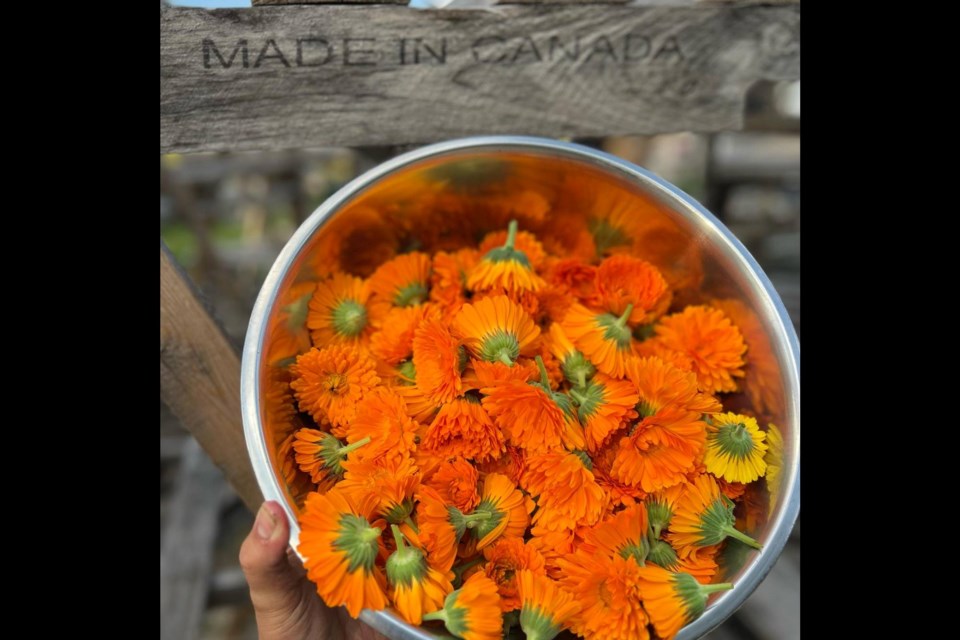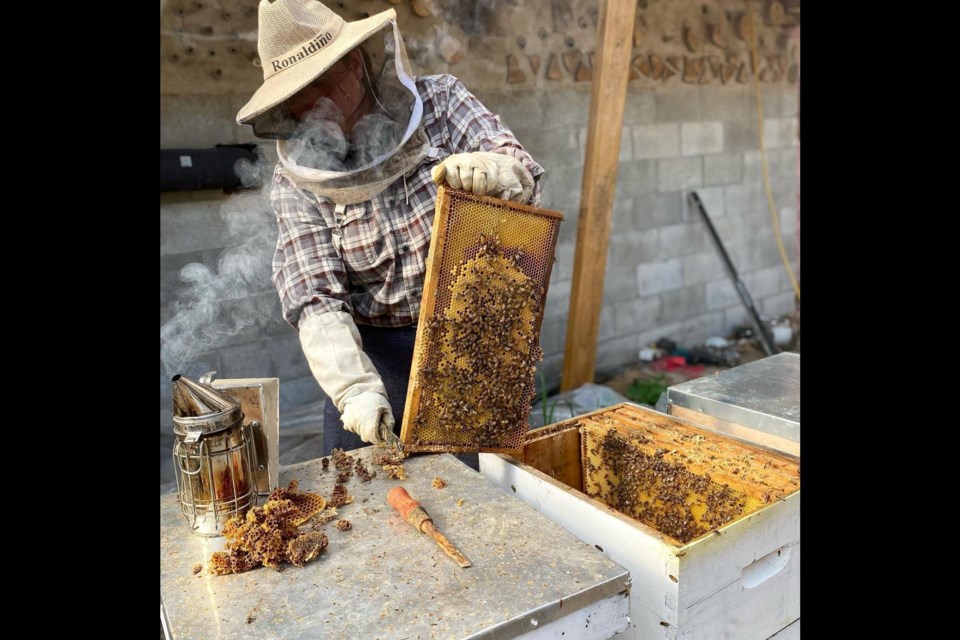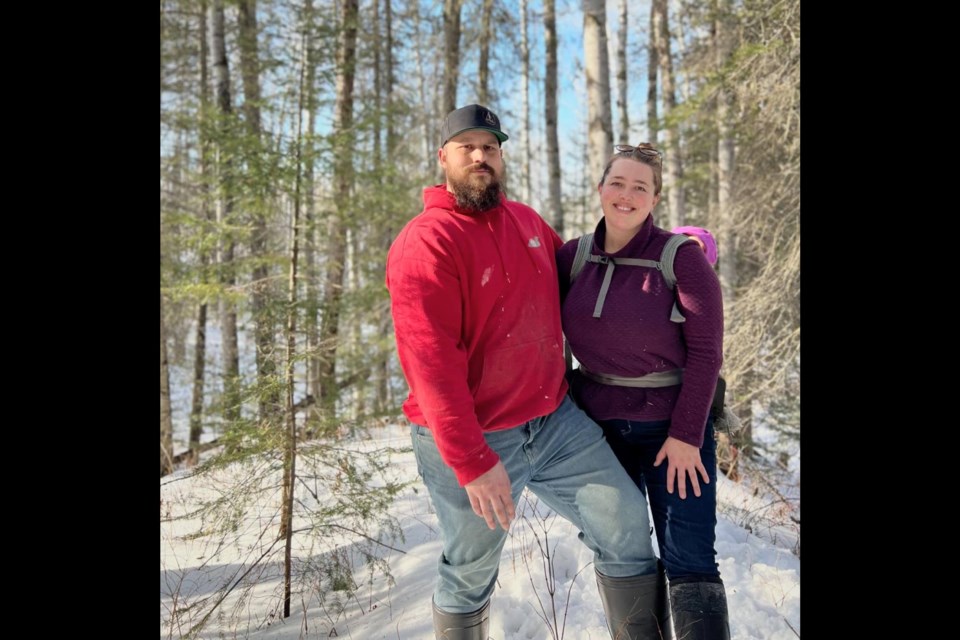Eight years ago, with their small but growing family in tow, Rachel Lachance and her husband, Mike Degagne, embarked on the off-grid adventure of a lifetime.
On a small plot of leased land in Timmins, they built and moved into a tiny house, equipped with limited plumbing, electricity and water, adding just a small solar system for their power needs.
“It was sort of like going back and realizing what it was like for our ancestors to actually live and to be, because it’s not that many generations away where everyone lived like this,” said Lachance, during an online agriculture-themed business camp hosted by Link North last month.
“It was a really incredible experience and through it I started making all of these herbal remedies.”

Spruce pitch salve, calendula cream, fire cider, balm of gilead — Lachance created them all using the variety of plants they foraged and grew on the land.
They became trusted herbal remedies used regularly by her family, but Lachance thought others might enjoy them, too.
“When I started selling small batches through our social media, they would sell out within 24 hours,” Lachance said. “There was a huge demand.”
Realizing she had hit on something, Lachance spent the next few years figuring out how to turn her passion into a viable business. And that’s how Black River Foraging Co. was born.
Today, Lachance’s family of six owns and manages 115 acres — dubbed Waxwing Commons Ecological Farmstead — in Timmins where they offer a range of services alongside the production and sale of their foraged and homegrown herbal remedies.
Black River Foraging directs workshops and mentorship in regenerative land management practices; leads ecotourism experiences, such as hiking and canoeing; offers project management, development and consulting services; and grows seasonal vegetables and wild mushrooms for local restaurants and grocery stores.
“That might seem like a lot of things,” Lachance said, “but it’s really an ecosystem, and they all work together and they’re all built on one another.”
During the early years of the COVID pandemic, when gardening and related activities surged in popularity, Lachance led sessions on topics like canning and container growing. But she also takes on larger community-based projects.
Between 2022 and 2023, Lachance was hired by Keepers of the Circle in Temiskaming to develop a food sovereignty department, which included setting up food forests, establishing a seed bank, and building youth programs, among other projects.
Last summer, in Taykwa Tagamou Nation, Lachance helped create a community garden and hosted intensive food workshops.
“That was a really fun experience, and it’s those kinds of projects that really fill the tank,” she said.

Ecotourism activities taking place on the family’s acreage might include plant walks or canoe trips and often overlap with their workshops, Lachance said. And while they do sell some of the seasonal vegetables they grow, cash cropping is not their primary motivator.
“For us, it’s not as much about producing a lot of food in the summer and selling it as a business,” Lachance said.
“It's more about producing a lot of food, being able to harness that for our family first, and then selling our excess.”
Their value-added herbal remedies remain their best-known products, but Lachance said it takes careful, year-round planning to be able to bring it all together.
Along with planting their gardens and managing their nine-hive apiary, the family has to time their foraging activities precisely to ensure they’re harvesting foraged plants at their optimum ripeness, she noted.
There’s a “sweet spot” each July when St. John’s wort reaches maturity, she noted, and poplar buds, used in their poplar balm salve, are at their peak for a period of about two weeks in the spring.
Managing their foraging time becomes a “delicate dance” that shifts year to year, evolving as the climate changes, Lachance said.
But integrating these activities has become a way of life for the family.
“It’s a way that we’re not tied down to the farm where we have to stay and manage everything really closely day to day in the fun season,” Lachance said.
“We can actually get out and go experience nature and go have adventures as a family. So it’s been woven into our family traditions.”
This year, the family has multiple projects planned to expand their enterprise, including bringing 150 meat chickens to the property.
A pavilion will be built on site to host visitors as part of a work-trade project. Visitors will come stay on the farm, learning and helping out with work, and in return they’ll keep a share of the year’s harvest.
The family will also be adding to their on-farm infrastructure with high tunnels, chicken housing, a drying shed, and perennial beds. Lachance is additionally working on a rebranding program and readying their products for wholesale.
On the ecotourism front, the family has already prototyped treehouses and a geodome in anticipation of eventually adding accommodations to their land.
“We would love to do cabin rentals, and that’s how it ties into our ecotourism even more, just to have somewhere where people can go and unplug and get grounded, and ski or walk trails or go canoeing,” Lachance said.
“We’ve got the perfect land to accommodate that.”



